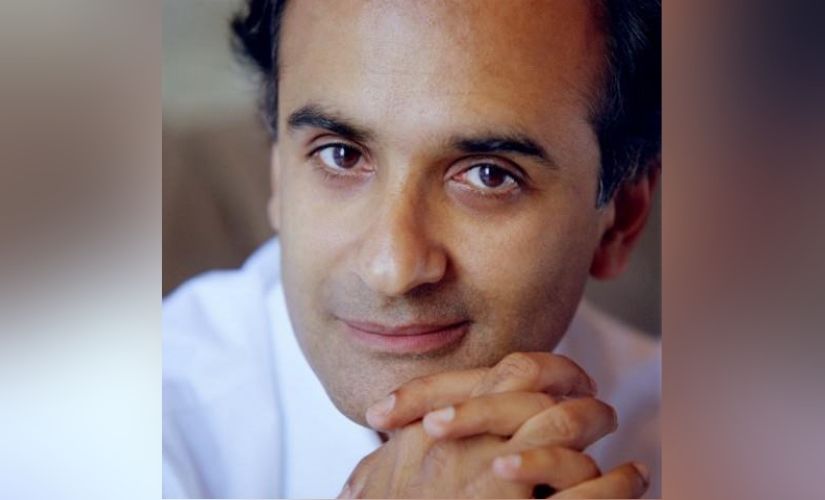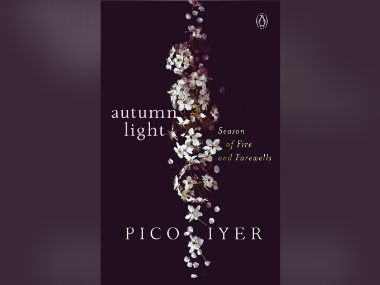I am not even 100 pages into reading of Pico Iyer’s Autumn Light: Season of Fire and Farewells, when I have to take a break. The languid pace and one too many ping-pong games in a community centre has failed to hold my interest. I wonder if there’s something I am missing. Iyer’s latest novel has received glowing reviews, with writers calling it haunting, elegant and a “moving meditation on impermanence”. I am 60 pages in and yet to see proof of this. Iyer’s wife Hiroko’s perplexed words echo in my head: “Your book, nothing happening?” she asks. Iyer’s decision to render Hiroko’s speech as is, without syntax or tenses sometimes, comes across as condescending. Autumn Light is the travel writer and author’s second book on Japan. The first one was The Lady and the Monk: Four Seasons in Kyoto, an account of his year spent in the country. [caption id=“attachment_6748711” align=“alignnone” width=“825”]  Cover of Autumn Light: Season of Fire and Farewells, by Pico Iyer[/caption] Thirty years ago, he went to Japan to “learn how to live with less hurry and fear of time”. He was instantly taken in by the culture, and how it successfully straddled ancient traditions and modern times in one elegant bow. He met his wife, Hiroko (who had two children from an earlier marriage) and ended up splitting time between his home in California (where his mother lives) and Japan. Autumn Light opens with the abrupt death of Hiroko’s 91-year-old father. It forces him to make the trip to the two-roomed house he shares with Hiroko in the sleepy Japanese community of Deer’s Slope near Nara, south of Kyoto. As he assists his wife with family matters and observes Japan’s mourning rituals, Iyer notes down how the Japanese deal with death: for instance, a local priest comes over on the seventh day after death — and on the 49th, and the hundredth — to chant the Heart Sutra. His marriage and family life form the core of the book, with his observations and musings about Japanese society and his philosophies on life. The people who populate his narrative and his days are interesting: his uncomplicated and quick-witted wife Hiroko Takeuchi, her elderly mother who forgets her husband is dead and gripes about having two children and yet ending up in a home, a psychologist brother-in-law who lives nearby but is estranged from his family, the Dalai Lama, a longtime friend, and the retirees he plays ping-pong with. It is this portrait of Japan that captivates because it goes beyond being an introduction to the place or a travel guide. Iyer pays homage to the Japanese, to their acceptance of loss, their self-restraint, and their ability to accommodate themselves in small spaces. His descriptions of the scenery can get lyrical like passages that portray “a path that’s still carpeted in scarlet and orange, so thick I might be walking on a crackling, seething Persian rug.” [caption id=“attachment_6748981” align=“alignnone” width=“825”]  Author Pico Iyer. Facebook/PicoIyer[/caption] The book, true to its name, is a tribute to autumn, the season of ‘fire and farewells’, or the universal season of transition and mortality that allows people to reflect on death and the impermanence of life. “Autumn poses the question we all have to live with: How to hold on to the things we love even though we know that they are dying.” Autumn Light is slow, melancholic, and reflective. There is no linear progression to the story. There is no story as much as thoughts on death, guilt, separations and reunions. It’s Iyer’s exploration of the conflict between ageing parents and their children that strikes a chord with me. As the pages turn, I come to find a deep admiration for Hiroko, who dashes off to grave sites to honour the dead, her bouts of ‘baby spring cleaning’ as the Japanese prepare for winter, her unflagging energy, and even what Iyer calls her crazy, seemingly thoughtless decisions. Autumn Light may not be about her, but she certainly is its star.
Autumn Light is Pico Iyer’s second book on Japan. It is slow, melancholic and reflective. There is no linear progression to the story. There is no story as much as thoughts on death, guilt, separations and reunions.
Advertisement
End of Article


)
)
)
)
)
)
)
)
)



